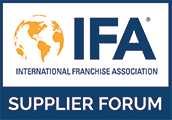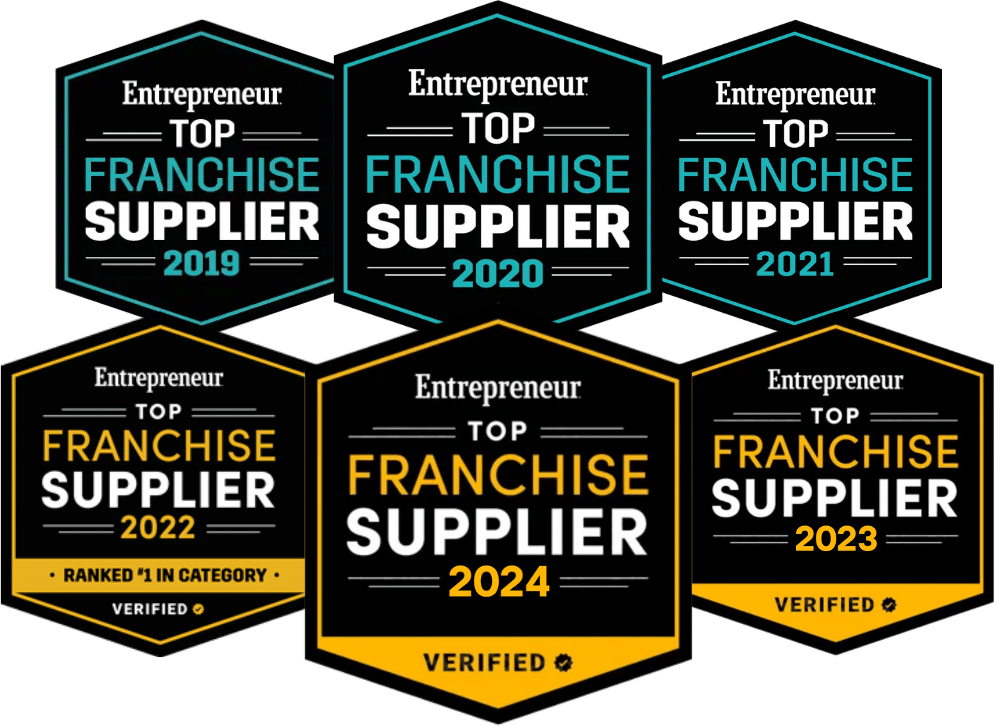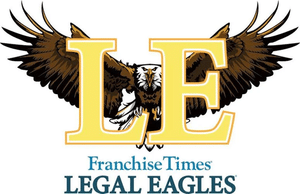Be sure to subscribe and tune into our quarterly luncheon discussions through our podcast on iTunes.
During this luncheon, we cover “Franchise Exit Strategies: Best Practices for Buying or Selling an Existing Franchise.” We welcome panelists, Eric Lavinder, Jena Henderson, Jim Provo, and moderator, Tom Spadea, to cover the unique challenges associated with exiting or inbounding into the franchise system.
Meet the Panel

Executive Vice President of The Simple Greek (a Marcus Lemonis Company). Connect with Eric.

Jena Henderson
Vice-President, Brand Services Saladworks. Connect with Jena.

Jim Provo
Franchisee, My Salon Suites, SBA Economic Development Specialist. Connect with Jim.
Main Points
Let’s highlight a few key discussions throughout this event:
[2:39-4:54] Why do people sell and transition in the first place?
Jena points out, “Our lives are constantly changing.” The franchise arena may have been suitable at one point, but eventually, life gets in the way. Eric and Jim agree—each emphasize the importance of maintaining a clear plan of action when your exit time is near.
It may be that your operations aren’t successful, or you are ready to retire. Regardless, set clear expectations and understand how to execute your plan. If your vision and communication are clear, your exit will be graceful.
[4:55-8:52] Let’s talk evaluations.
There are many methods of evaluations out there. Jim mentions a common financial method which can be determined by establishing the proper multiple of a seller’s discretionary earnings.
However you chose to understand the value, an evaluation is necessary. Establishing this number will help a seller assess the worth of a business and a buyer to determine if the business is a worthy investment.
There are a lot of factors that drive a business owner to sell — sometimes the challenge for a seller can be, “Why should I sell?” Do the research! There are plenty of digital resources that can help you.
[8:53-12:10] How do franchisors deal with franchisee’s unrealistic expectations?
One word: honesty. Eric points out how simple a conversation based upon revenue can be if a franchisee isn’t producing sales. If your business is failing, “You have two options: get back in your store and fix your sales! If your business isn’t making money, get out and sell.”
Jena adds, as a franchisor, it’s your responsibility to keep a close eye on a business where an exit may be in the works. Oftentimes a franchisee will sit on a business that is bleeding because they are not ready to sell their location for less than what they put into it. The reality is, a franchisee should not expect to receive a profit when selling. The franchisor should monitor these situations and step in to have that difficult conversation if necessary.
[12:11-29:59] What do you think surprises buyers or sellers about the sales process?
All panelists agree that the amount of due diligence that is necessary between a buyer and seller is overwhelming for some to imagine. Each party should know the franchise requirements, be educated and understand the FDD. Eric reminds us, the franchise system shouldn’t be considered an entrepreneur venture. “You are buying into a system” that enforces spending to be allocated in order to continuously reinvent the business.
If you are a seller, have a mediator to discuss negotiations between marketing and operations. Additionally, a business broker can provide resources and aid in the search for buyers.
The resale process takes time; make sure to have your books in order and documentation ready so the negotiation process can run smoothly. All panelists agree, refrain from communicating exit details to your team. Circumstances where information is shared early can lead to a decrease in the value of a business. Employees may quit, or performance could decline if word of new management becomes common knowledge.
Jena strongly suggests: “Don’t stop trying to build your business just because you don’t want to run it anymore.” The value of your business will only go up if you continue to build while you are on your way out.
[30:00-34:44] How important is the lease?
From a lender perspective, Jim points out that the term of the loan can’t exceed the term of the lease. Your obligations to your landlord and your franchisor may be separate.
Your franchisor might be flexible regarding certain terms in order to motivate the execution of an exit; however, a landlord will not operate the same way. If you do find yourself with long-term obligations to a landlord, Jena suggests speaking with your franchisor and broker about your options.
Also, it’s not a bad idea to purchase a business appraisal prior to the start of the selling process. This will provide information about the value of your business so you can set the right expectations.
[35:14-45:00] Audience questions.
Here the panel answers questions from the audience surrounding topics about average evaluation prices, business brokers, pro-formas and attorney recommendations.
[46:14-48:51] Are there any strategies that work for transferring a business to a family member?
Succession planning is a great option; from a franchisor’s standpoint, having an inbounding franchisee that has a keen understanding of the business is optimal. Eric and Jim state: make sure succession conversations happen early on before the exit takes place. “Your franchisor will want to make sure your family member has the network and is qualified.”
48:52-50:00 Panel Takeaways.
Jim says, “Start early! If you are selling, don’t let your business deteriorate while the sale is going down. If you are buying, be aware of that potential and monitor any degradation or improvement as this will change the value of the business.”
Jena urges you to do your homework and read the franchise agreement.
Eric wraps up the discussion with some sage advice: understand why you are buying or selling, set realistic expectations, and do your due diligence.
Learn more about the Philadelphia Franchise Association and catch the full-length video here.










